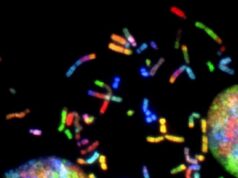DNA activity can change without changing the sequence of the DNA segment itself. Gene activation and inactivation can be the basis for how species produce unique individuals. Some processes that change gene activity are well understood in the context of model species. However, scientists are still grappling with how some processes, like DNA methylation, change gene activity in many diverse organisms. Broader theories applicable to all species have proven elusive, given the amount of natural variability on Earth.
Now, a group of scientists have published a study in Nature Ecology and Evolution comparing and relating DNA methylation across 40 diverse fungal species. The paper, part of a larger effort to develop a unified theory of DNA methylation, begins to fill a taxonomic gap for the “rules” associated with DNA methylation that are conserved across species, as well as where and why they have diverged.
“Undoubtedly, differences in DNA determine the observable characteristics of individuals,” said Adam Bewick, postdoctoral research associate in the University of Georgia Franklin College of Arts and Sciences Department of Genetics and first author on the new paper. “However, an increasing amount of evidence suggests that heritable alterations to how DNA is expressed, without changes to the DNA sequence can contribute to or determine these characteristics. One way that expression differences are achieved is through modifications, like a methyl group that attaches to DNA.”
In collaboration with colleagues at UGA, University of California, Riverside, University of Michigan, and the Joint Genome Institute, the research team compared DNA and other modifications to characteristics across a wide and diverse sampling of species.
“DNA methylation and other modifications have significant implications for our understanding of natural variation and how it changes over time,” Bewick said.
Find your dream job in the space industry. Check our Space Job Board »
One of the key findings is that gene expression isn’t likely affected directly by DNA methylation in fungi but may serve a role in genome integrity.
“Through this and other large comparative studies we are gaining a better understanding of how modifications to DNA contribute to variation between and within species and how can we leverage this variation for medical and agricultural advancements.”
The new paper, “Diversity of cytosine methylation across the fungal tree of life,” was published February 18.
Provided by: University of Georgia
More information: Adam J. Bewick et al. Diversity of cytosine methylation across the fungal tree of life. Nature Ecology & Evolution (2019). DOI: 10.1038/s41559-019-0810-9
Image:
Credit: University of Georgia











